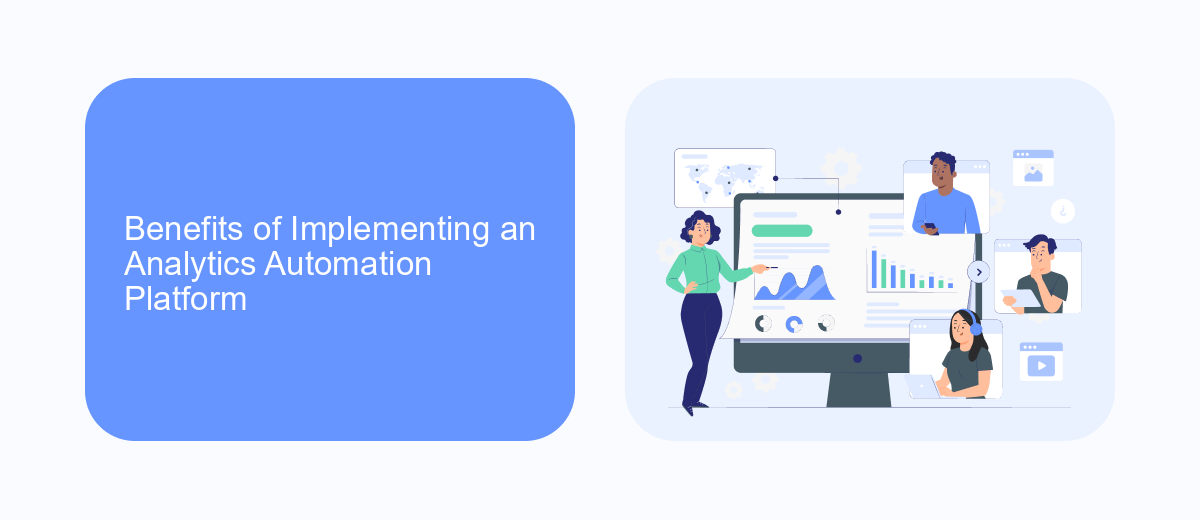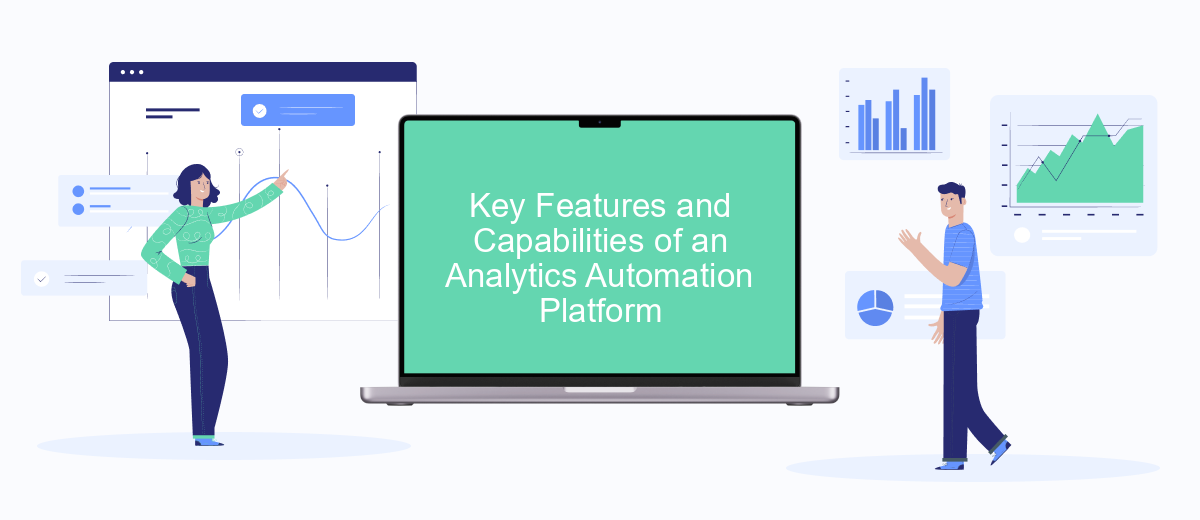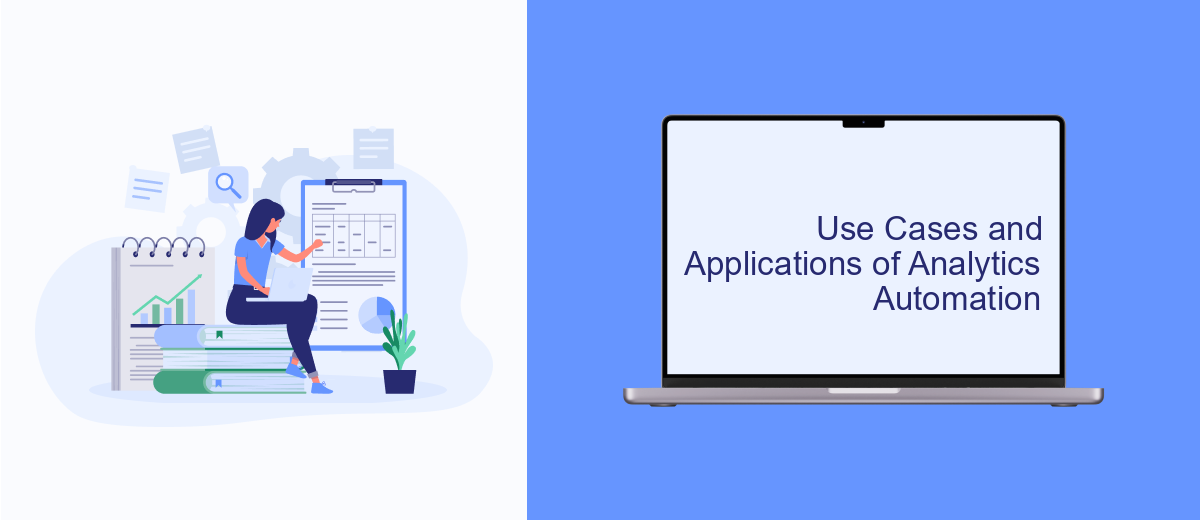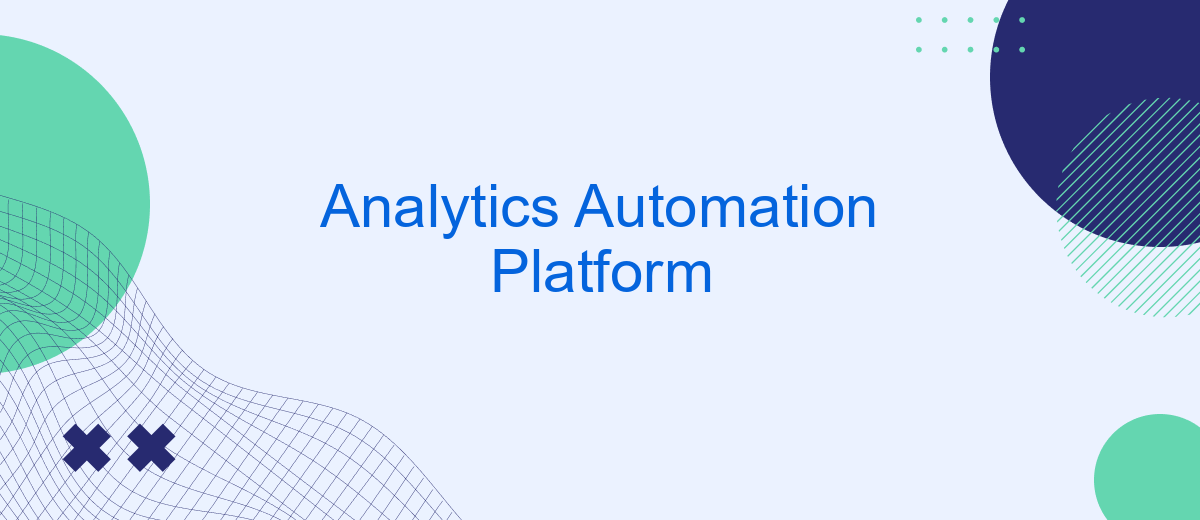In today's fast-paced business environment, the demand for efficient data analysis is higher than ever. An Analytics Automation Platform empowers organizations to streamline their data processes, reduce human error, and make informed decisions swiftly. By automating data collection, processing, and visualization, businesses can unlock valuable insights and drive growth with precision and agility, staying ahead in the competitive landscape.
Introduction to Analytics Automation Platform
Analytics Automation Platforms are revolutionizing the way businesses handle data by streamlining the process of data analysis and interpretation. These platforms enable organizations to automate repetitive tasks, allowing data analysts and decision-makers to focus on deriving insights rather than managing data. By integrating various data sources and employing advanced algorithms, analytics automation platforms provide a more efficient and accurate approach to data management.
- Automated data collection and integration from multiple sources
- Real-time data processing and analysis
- Customizable dashboards and reporting tools
- Predictive analytics and machine learning capabilities
- Enhanced data security and compliance features
By leveraging these features, businesses can achieve greater operational efficiency and make data-driven decisions with confidence. The use of analytics automation platforms not only reduces the time and effort required for data analysis but also minimizes human error, ensuring more reliable outcomes. As the demand for actionable insights continues to grow, these platforms are becoming essential tools for organizations aiming to stay competitive in an increasingly data-centric world.
Benefits of Implementing an Analytics Automation Platform

Implementing an analytics automation platform offers numerous benefits, streamlining data processes and enhancing decision-making capabilities. By automating repetitive tasks, organizations can significantly reduce human error and free up valuable time for data analysts to focus on more strategic initiatives. This leads to more accurate and timely insights, empowering businesses to make informed decisions faster. Additionally, automation platforms can integrate seamlessly with existing tools, providing a unified view of data across various sources.
One of the key advantages of using an analytics automation platform is the ability to easily set up integrations with other software and services. For instance, services like SaveMyLeads facilitate the automation of data flows between different applications, ensuring that data is consistently updated and accessible. This not only improves data accuracy but also enhances collaboration across departments. As a result, organizations can achieve greater operational efficiency and drive innovation by leveraging comprehensive and real-time data insights.
Key Features and Capabilities of an Analytics Automation Platform

An Analytics Automation Platform is designed to streamline data processes and enhance decision-making through automation. By leveraging advanced technologies, these platforms enable organizations to efficiently handle large volumes of data, reduce manual intervention, and uncover valuable insights. The integration of automation in analytics not only accelerates data processing but also ensures accuracy and consistency, empowering businesses to make informed decisions swiftly.
- Data Integration: Seamlessly connect and unify data from various sources to create a comprehensive data ecosystem.
- Automated Data Cleaning: Ensure data quality by automatically detecting and rectifying errors, inconsistencies, and duplicates.
- Advanced Analytics: Utilize machine learning and AI to perform predictive and prescriptive analytics for deeper insights.
- Real-time Reporting: Generate and visualize reports in real-time, offering instant access to critical business metrics.
- Scalability: Easily scale operations to handle increasing data volumes and complexity without compromising performance.
These key features and capabilities make an Analytics Automation Platform an indispensable tool for modern businesses. By automating repetitive tasks and enhancing analytical capabilities, organizations can focus on strategic initiatives and drive innovation. Ultimately, this leads to improved operational efficiency and a competitive edge in the ever-evolving business landscape.
Use Cases and Applications of Analytics Automation

Analytics automation platforms are transforming the way businesses handle data by streamlining processes and reducing manual effort. These platforms enable organizations to efficiently analyze vast datasets, providing real-time insights that drive strategic decision-making. By automating repetitive tasks, companies can focus on higher-level analysis and innovation.
Various industries are leveraging analytics automation to enhance their operations. From finance to healthcare, these platforms are helping organizations optimize their workflows, improve accuracy, and reduce costs. By integrating with existing systems, analytics automation platforms provide a seamless experience that enhances data-driven decision-making.
- Retail: Optimize inventory management and personalize customer experiences.
- Finance: Automate risk assessment and enhance fraud detection.
- Healthcare: Improve patient care through predictive analytics and resource management.
- Manufacturing: Streamline supply chain operations and predictive maintenance.
As businesses continue to embrace digital transformation, the demand for analytics automation platforms is set to grow. These tools not only enhance productivity but also provide a competitive edge by enabling organizations to respond swiftly to market changes and customer needs. The future of analytics lies in automation, unlocking new possibilities for innovation and growth.
Choosing and Implementing an Analytics Automation Platform
Choosing the right analytics automation platform involves assessing your organization's specific needs and objectives. Begin by identifying the key features that are essential for your business, such as data integration capabilities, user-friendly interfaces, and scalability. Evaluate platforms based on their ability to seamlessly integrate with existing systems and tools, ensuring a smooth transition and minimal disruption. Consider platforms that offer robust support and training resources to empower your team in maximizing the platform's potential.
Implementing an analytics automation platform requires careful planning and execution. Start by establishing a clear implementation timeline and assigning responsibilities to team members. Leverage services like SaveMyLeads to streamline integration processes, reducing the time and effort needed to connect various data sources. This service can automate data flow between applications, ensuring real-time data availability for analysis. Regularly monitor performance and gather feedback to make necessary adjustments, ensuring the platform meets evolving business needs and delivers actionable insights.
FAQ
What is an Analytics Automation Platform?
How does an Analytics Automation Platform benefit businesses?
Can an Analytics Automation Platform integrate with other tools and systems?
What features should I look for in an Analytics Automation Platform?
How can I ensure data security and privacy when using an Analytics Automation Platform?
You probably know that the speed of leads processing directly affects the conversion and customer loyalty. Do you want to receive real-time information about new orders from Facebook and Instagram in order to respond to them as quickly as possible? Use the SaveMyLeads online connector. Link your Facebook advertising account to the messenger so that employees receive notifications about new leads. Create an integration with the SMS service so that a welcome message is sent to each new customer. Adding leads to a CRM system, contacts to mailing lists, tasks to project management programs – all this and much more can be automated using SaveMyLeads. Set up integrations, get rid of routine operations and focus on the really important tasks.
